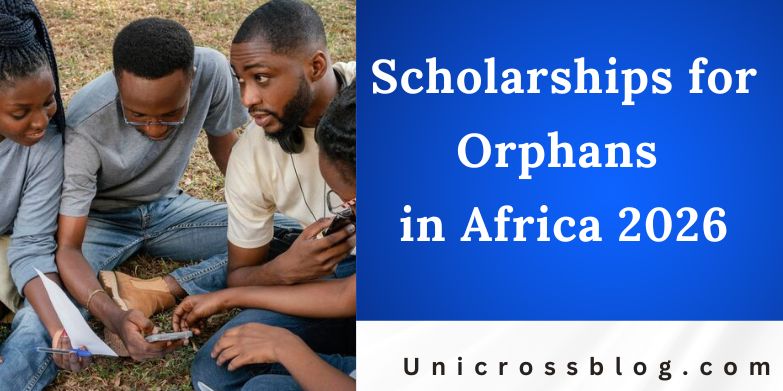Across Africa, millions of children navigate life without the guidance and support of parents, often due to conflicts, diseases, poverty, or natural disasters. Orphans in sub-Saharan Africa, in particular, face staggering challenges: limited access to quality education, economic instability, and emotional trauma that can derail their futures. Yet, education remains a powerful beacon of hope, offering pathways to self-sufficiency, leadership, and community transformation. Scholarships dedicated to orphans are more than financial aid; they are lifelines that empower resilient young minds to break cycles of disadvantage and contribute to Africa’s vibrant development.
As we look toward 2026, opportunities for orphaned students are expanding, driven by global philanthropy, international organizations, and African-led initiatives. These programs prioritize academic excellence, leadership potential, and a commitment to returning home to foster change. From fully funded undergraduate degrees abroad to targeted bursaries within the continent, scholarships for orphans in Africa aim to build a generation of innovators, policymakers, and entrepreneurs.

Key Scholarships for Orphans in Africa 2026
Several scholarships stand out for their focus on orphaned or bereaved students from African nations. These programs often cover tuition, living expenses, travel, and mentorship, ensuring holistic support. Below is an overview of prominent options tailored for 2026, emphasizing those with explicit provisions for orphans.
1. Ashinaga Africa Initiative (AAI)
Launched in 2017, the Ashinaga Africa Initiative targets orphaned students from sub-Saharan Africa, aiming to cultivate leaders who will drive continental progress. This fully funded program selects about 20 scholars annually, providing access to top universities in Japan, the UK, US, or Europe for undergraduate studies equivalent to a bachelor’s degree.
Eligibility focuses on high school graduates aged 15 to 22 who have lost one or both parents and demonstrate strong academic records alongside financial need. Applicants must commit to returning to sub-Saharan Africa post-graduation to initiate positive change, such as through entrepreneurship or public service. The selection process begins with a Study Camp in Uganda or Senegal, where candidates receive intensive preparation for university applications, career planning, and leadership training.
Benefits are comprehensive: full tuition coverage, on-campus accommodation, round-trip flights, health insurance, and a monthly stipend for food and essentials. Scholars also gain access to a global alumni network for ongoing mentorship. For 2026, applications typically open in late 2025, with deadlines around January. Success stories abound, like alumni founding tech startups in Kenya or advocating for policy reforms in Nigeria, underscoring the program’s impact on Africa’s future.
2. Mastercard Foundation Scholars Program
The Mastercard Foundation partners with universities across Africa and beyond to support orphaned and disadvantaged youth through its Scholars Program. For 2026, opportunities include the University of Toronto’s Doctor of Public Health Scholarships and various undergraduate and master’s tracks at African institutions like the American University of Beirut and Carnegie Mellon University Africa.
Eligible candidates are orphans or those from low-income households in sub-Saharan Africa, pursuing degrees in fields like public health, engineering, or business. Requirements include a minimum GPA equivalent to 3.0, leadership involvement, and essays outlining community impact goals. The program emphasizes holistic development, incorporating leadership workshops and internships.
Awards cover full tuition, accommodation, laptops, and stipends, plus travel for international placements. In Africa-focused cohorts, scholars benefit from local networks, with many alumni leading NGOs or health initiatives. Applications for 2026 open in October 2025, closing by early 2026, varying by host university. This initiative has empowered over 40,000 young Africans, proving education’s role in equitable growth.
3. Beit Trust Postgraduate Scholarships
Administered by the Beit Trust, this program funds master’s degrees at select British and South African universities for orphaned or economically vulnerable students from Malawi, Zambia, and Zimbabwe. For 2026, it prioritizes fields like agriculture, health, and education to address regional needs.
Applicants must be under 30, hold a strong bachelor’s degree, and provide proof of orphan status or extreme hardship. A commitment to return and apply skills locally is essential. The rigorous process involves academic transcripts, references, and interviews assessing potential societal contributions.
Scholarships include full tuition, living allowances, travel, and thesis grants, totaling up to £25,000 per student. With partnerships at institutions like the University of Cape Town, scholars access world-class facilities. Deadlines fall in February 2026, and past recipients have advanced to roles in sustainable farming or public policy, amplifying the trust’s legacy since 1906.
4. Aga Khan Foundation International Scholarship Programme (AKF ISP)
The AKF ISP supports postgraduate studies for outstanding students from developing countries, including African orphans, who lack other funding sources. For the 2026-2027 cycle, it offers half-grants and half-loans for master’s degrees in fields like development studies or STEM at universities worldwide.
Eligibility requires applicants to be under 30, demonstrate financial need (with orphan status as a priority factor), and show academic merit. Half-orphan or fully orphaned candidates from East Africa receive preference. Applications, opening in January 2026, demand detailed financial plans and essays on career aspirations.
The award covers tuition and living costs, with the loan portion repayable interest-free over five years post-graduation. This structure promotes sustainability while providing mentorship through Aga Khan networks. Over 7,000 alumni have benefited, many returning to lead community projects in Tanzania or Uganda.
5. MINDS Postgraduate Scholarship Programme
The Mandela Institute for Development Studies (MINDS) offers scholarships for Africans pursuing master’s degrees in development-related fields at partner institutions across the continent. For 2026, it welcomes orphaned applicants committed to Pan-African leadership.
Candidates need a bachelor’s degree with honors, relevant work experience, and proof of orphanhood or vulnerability. The program values essays on Africa’s unity and personal resilience stories.
Full funding includes tuition, accommodation, books, and a stipend, plus regional forums for networking. Applications are ongoing into late 2025. Scholars often emerge as diplomats or economists, strengthening intra-African ties.
Application Tips
Securing a scholarship demands preparation. Start early: gather transcripts, recommendation letters from teachers or guardians, and proof of orphan status (e.g., affidavits or death certificates). Craft compelling personal statements highlighting resilience, academic passion, and post-study contributions to Africa. Practice interviews to articulate goals clearly. Seek mentorship from past scholars via alumni groups. Track deadlines meticulously, as many open in late 2025. Finally, apply to multiple programs to maximize chances, remembering that rejection often stems from competition, not merit.
READ ALSO: Best Business Scholarships for Undergraduates in 2026
FAQs
Who qualifies as an “orphan” for these scholarships?
Most programs define orphans as those who have lost one or both parents, verified by official documents. Some extend to bereaved or foster youth facing similar hardships.
Can I apply if I’m already in university?
Yes, many like AKF ISP and World Bank target continuing students for postgraduate levels, while undergraduate options like Ashinaga suit high school leavers.
Do these scholarships cover study within Africa only?
No, options span local (e.g., FAWE TVET) to international (e.g., UK, Japan), with a preference for returns to Africa post-study.
What if English isn’t my first language?
Programs often accept TOEFL/IELTS waivers for African applicants or provide language support during Study Camps.
How competitive are these scholarships?
Highly, with acceptance rates under 10% for top programs, but strong academics and essays boost odds.







